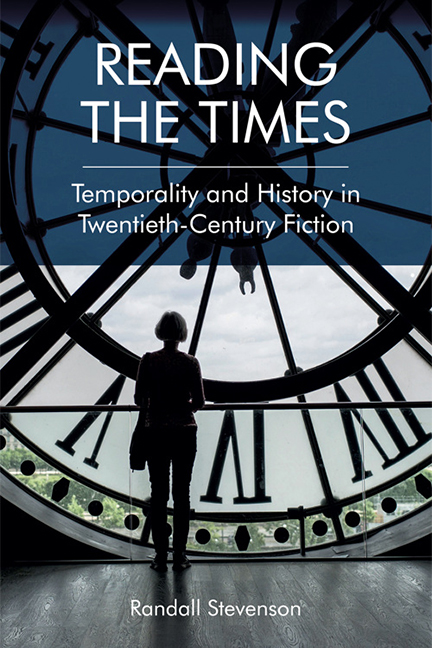Book contents
- Frontmatter
- Contents
- List of Illustrations
- Preface
- 1 Introduction: Picnic Time, Prime Time, Story Time
- 2 ‘All Those Figures’: Joseph Conrad and the Maritimes
- 3 ‘Wheels within Wheels’: D. H. Lawrence, Industrial Time and War Time
- 4 Times in the Mind: Modernism in the 1920s
- 5 Not Like Old Times: The 1930s to Mid-Century
- 6 ‘Time is Over’: Postmodern Times
- 7 Conclusion: Millennial Times, Perennial Times
- Bibliography
- Index
5 - Not Like Old Times: The 1930s to Mid-Century
Published online by Cambridge University Press: 10 November 2020
- Frontmatter
- Contents
- List of Illustrations
- Preface
- 1 Introduction: Picnic Time, Prime Time, Story Time
- 2 ‘All Those Figures’: Joseph Conrad and the Maritimes
- 3 ‘Wheels within Wheels’: D. H. Lawrence, Industrial Time and War Time
- 4 Times in the Mind: Modernism in the 1920s
- 5 Not Like Old Times: The 1930s to Mid-Century
- 6 ‘Time is Over’: Postmodern Times
- 7 Conclusion: Millennial Times, Perennial Times
- Bibliography
- Index
Summary
Cyril Connolly and Wyndham Lewis outline a late 1920s ‘obsession with the passage of Time’ quite strong enough simply to have continued into the next decade. Any such continuity was nevertheless marked by new emphases and by significant mutations within established ones. Some of these can be traced in Virginia Woolf's writing, discussed in this chapter's second section. Even before the end of the 1920s, they were apparent in other ways in J. W. Dunne's popular An Experiment with Time, published in 1927 and reissued in several further editions by the mid-1930s. Though Dunne's views often seem odd or implausible, the widespread interest they aroused in the late 1920s and 1930s makes them worth considering further, as an intriguing symptom of some of the concerns of his times.
Future Present
J. W. Dunne had been a pilot and aircraft engineer during the pioneering days of aviation, designing the first British military aircraft in 1906, three years after the Wright brothers had first achieved powered flight. He later took his friend H. G. Wells flying, around 1912. He describes his first flights – ‘the sensation was most extraordinary’ – in An Experiment with Time, and discusses temporal dimensions in terms which might be considered to resemble the aloof vision of spatial landscapes afforded by his earlier work as a pilot. Experience of precognitive dreams persuaded Dunne that the sleeping mind could rise above the ‘first-term world, where time appears as a succession of simple three-dimensional scenes, with the future entirely hidden’. Dreams, Dunne believed, could allow access to a ‘second-term world … brilliant and real’, in which ‘your past and your future lie stretched out before you like an unrolled scroll’. Like another thinker seeking to divide time into various series, John McTaggart – whose study, The Nature of Existence, also appeared in 1927 – Dunne's interest in a ‘second-term world’ led him on towards further, timeless, ontological planes, and ultimately towards asserting the eternal existence of the soul. Though arcane diagrams and semialgebraic formulations make sections of An Experiment with Time difficult reading, affirmative accounts of vision and the soul carry an obvious appeal.
- Type
- Chapter
- Information
- Reading the TimesTemporality and History in Twentieth-Century Fiction, pp. 124 - 159Publisher: Edinburgh University PressPrint publication year: 2017



